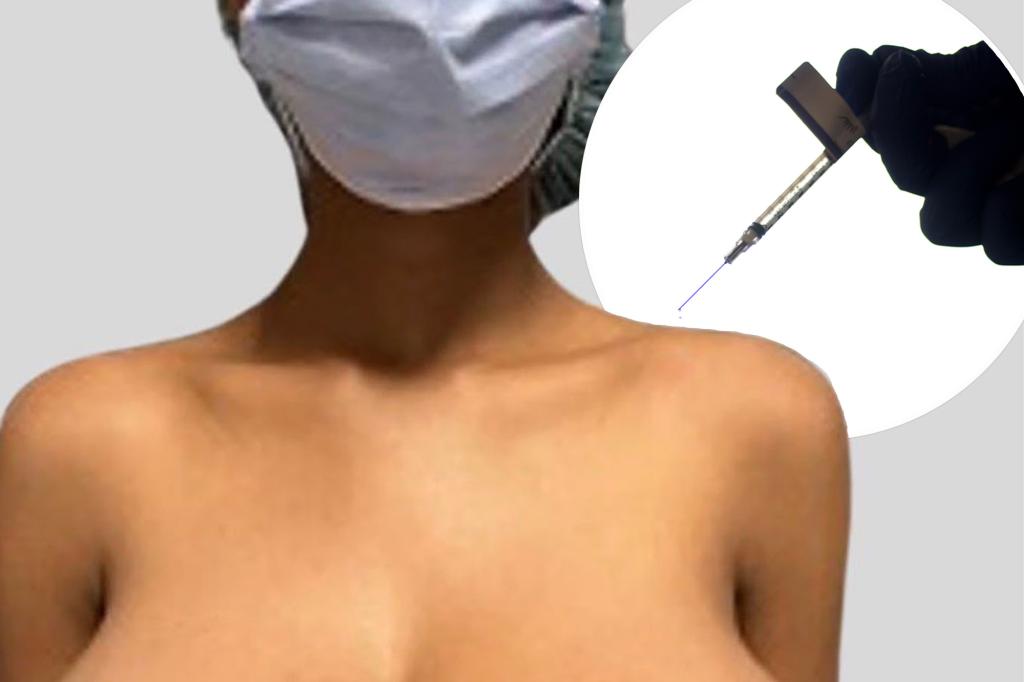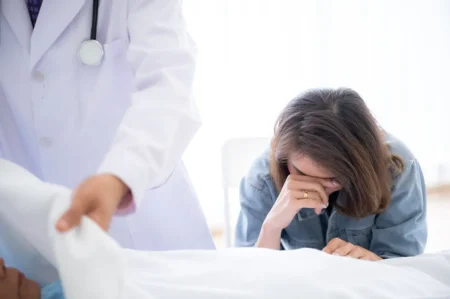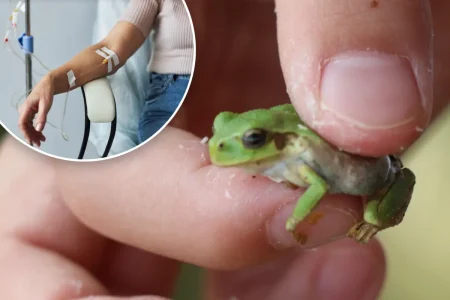This case study details the unusual experience of a 19-year-old woman who experienced rapid and significant breast growth following her Pfizer COVID-19 vaccination, a phenomenon the researchers are characterizing as potentially the first of its kind. One week after receiving her first dose in September 2022, the woman noticed her breasts beginning to enlarge, increasing from a B cup to a triple G cup within six months. This rapid growth intensified after the second dose. While the woman believed the vaccine to be the cause, her concerns were dismissed by her primary care physicians, leading to a breakdown in trust with the healthcare system. This dismissal underscores the importance of thorough investigation and empathetic patient care, especially in cases presenting unusual symptoms post-vaccination.
The study, published in the Plastic & Reconstructive Surgery-Global Open journal, highlights the established link between COVID-19 vaccination and lymph node swelling. However, structural changes or alterations in breast tissue density are extremely rare following vaccination. While anecdotes of increased breast size post-vaccination, often dubbed the “Pfizer boob job,” have circulated, there is no scientific evidence to support a causal relationship between the vaccine and breast enlargement. The researchers emphasize the singularity of this case, distinguishing it from a previously documented instance where a Pfizer booster was associated with a distinct breast lump. The young woman in this study did not present with any lumps.
Further investigation revealed the woman had a very rare condition called pseudoangiomatous stromal hyperplasia (PASH), characterized by benign lesions that can cause excessive breast growth, or gigantomastia. With fewer than 20 documented cases worldwide, PASH is an exceedingly uncommon diagnosis. While this condition explains the breast enlargement, the researchers highlight the temporal association between the onset of PASH-associated gigantomastia and the administration of the COVID-19 vaccine. This temporal link raises questions about a potential, though currently unsubstantiated, connection between the vaccine and the activation or exacerbation of PASH. It’s crucial to underscore that this case study presents a correlation, not causation.
The woman experienced tingling in her breasts prior to the growth, a symptom not typically associated with PASH. Medical examinations, including blood work, failed to reveal any hormonal imbalances that might explain the rapid breast enlargement. Steroids and antibiotics, prescribed in an attempt to address the issue, proved ineffective. The breast growth eventually stabilized after six months, reaching a triple G cup. Five months later, the woman underwent breast reduction surgery to alleviate the physical discomfort and emotional distress caused by the excessive growth.
The surgical procedure was complicated by significant blood loss, limiting the amount of breast tissue that could be removed. Following the surgery, the woman’s breast size reduced to a double D cup. A further reduction surgery may be necessary to restore her breasts to their original size. This case underscores the potential physical and psychological impact of rare conditions like PASH, particularly when exacerbated by unexpected circumstances, such as a potential link to vaccination.
The study authors acknowledge the need for extensive research to ascertain any causal link between the COVID-19 vaccine, PASH, and rapid breast growth. This call for further research is crucial in light of the widespread administration of COVID-19 vaccines globally. With over 13.6 billion doses administered since 2020, even a small percentage of adverse events can translate into a significant number of individuals experiencing unexpected side effects. While adverse reactions have been documented, medical professionals maintain that the benefits of vaccination against COVID-19 continue to outweigh the risks. This case, while unique, warrants further investigation to understand the complex interplay of factors that may contribute to rare complications following vaccination. Such research will be vital in enhancing patient care and maintaining public trust in vaccination programs.














